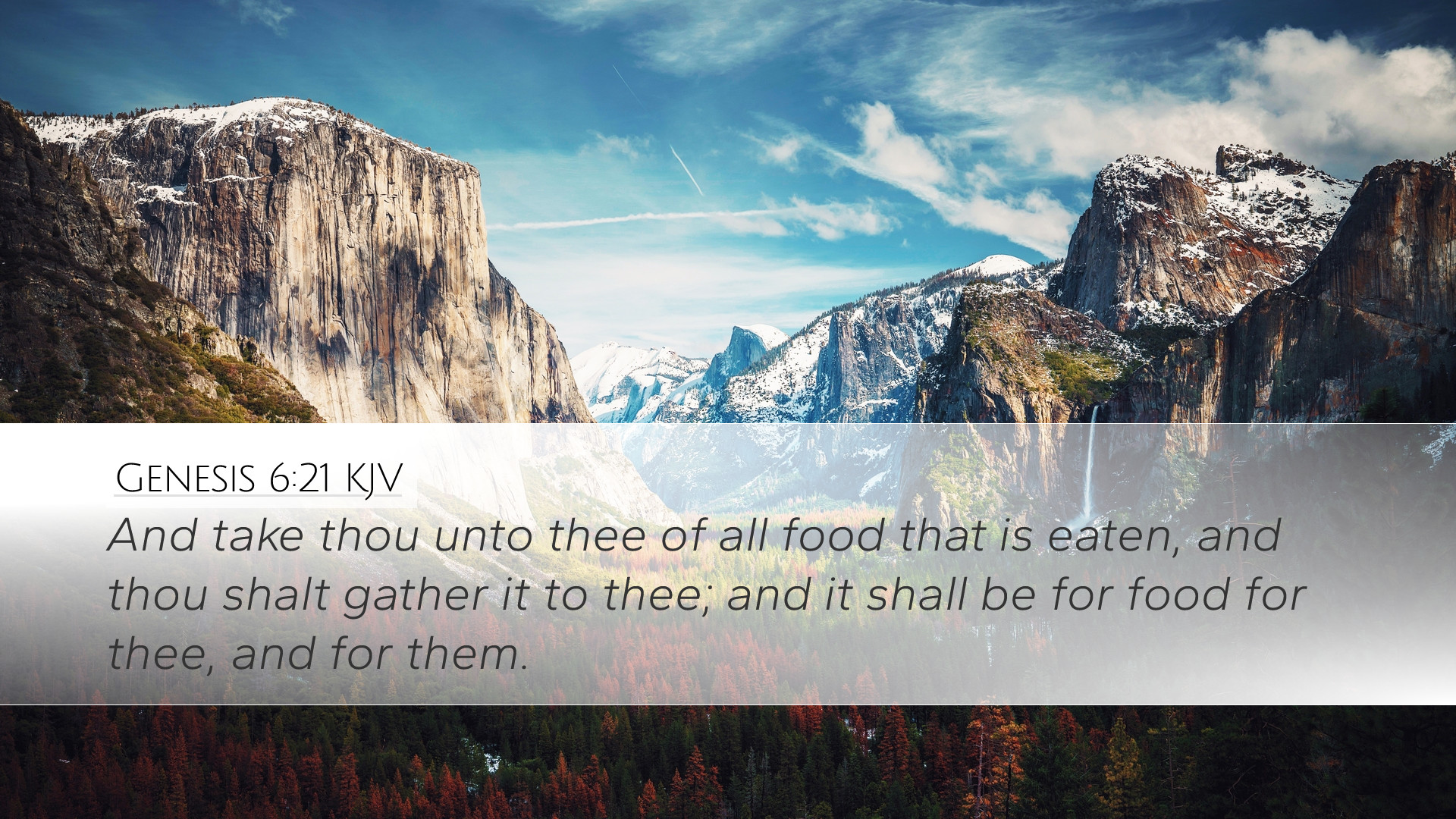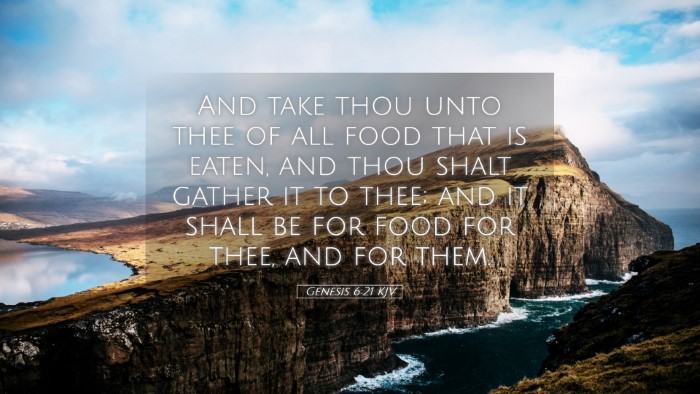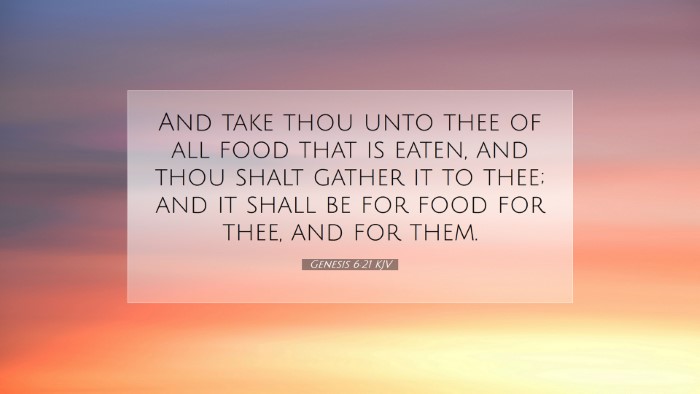Commentary on Genesis 6:21
Genesis 6:21 states, "And you shall take for yourself of all food that is eaten, and you shall gather it to yourself; and it shall be food for you and for them." This verse is part of the account of Noah and the Ark, and unfolds profound themes of divine instruction, preservation, and the provision of God amidst impending judgment.
Contextual Background
The context of Genesis 6 revolves around God's judgment upon a corrupt world, evidenced by mankind's rampant wickedness. In this context, God designates Noah as a righteous man, instructing him to build an ark. This ark becomes a symbol of God's mercy and the means by which Noah and his family, along with various species of animals, would be preserved.
Insights from Matthew Henry
Matthew Henry emphasizes that God's directions to Noah are both practical and filled with theological significance. He notes:
- God’s Providence: The provision of food showcases God's care for both human and animal life during the tribulations of the flood. Henry highlights that God's mercy extends beyond humanity to all living creatures.
- The Role of Obedience: Noah’s obedience in gathering food is a testament to his faith in God’s promise. Henry posits that Noah's actions demonstrate an integral harmony between faith and works—faithful obedience amid dire prophecies.
Insights from Albert Barnes
Albert Barnes provides a theological lens to interpret the significance of food in this passage, stressing:
- Symbol of Sustenance: Barnes views the provision of food as a symbol of sustenance for life. The ark represents a safe haven, just as God's provisions signify spiritual nourishment for His people.
- Inclusive Design: Barnes also notes the inclusiveness of God’s design: both Noah and the animals are to receive food, indicating a plan that reflects the interconnectedness of creation. God's plan is comprehensive and reflects His desire for shalom (peace) within creation.
Insights from Adam Clarke
Adam Clarke emphasizes the practical aspects of the verse, remarking on the need for preparedness, stating:
- Preparation for the Future: Clarke underscores the necessity of preparation. Noah’s instruction to gather food signifies the importance of being ready for what is to come. This preparation is a motif echoed in biblical narratives, urging believers to prepare for God’s work.
- Types and Shadows: Clarke also reflects on the typological implications of Noah's ark as a precursor to Christ and salvation. The gathering of food symbolizes the provisions offered through Christ, who is the Bread of Life.
Theological Themes
This verse encapsulates several theological themes relevant to current pastoral and scholarly discourse:
- Divine Provision: The act of gathering food can be viewed as a metaphor of God’s provision for His creation. This theme aligns with broader biblical narratives where God provides for His people, further illuminating the character of God as a caretaker.
- Judgment and Mercy: In light of the judgment that was imminent, God’s command to Noah underscores the tension between divine judgment and God’s redemptive mercy. The act of preservation is a testament to God’s desire for redemption over destruction.
- Preparation and Faithfulness: The importance of preparation as an act of faith is evident in the narrative. Noah’s diligence in obeying God’s commands reflects a lived faith that can inspire current believers to act faithfully in the face of trials.
Application for Contemporary Readers
For pastors, students, theologians, and Bible scholars, Genesis 6:21 holds significant applications:
- Faithfulness in Adversity: Much like Noah, contemporary believers are called to remain faithful amidst adversity, preparing for what lies ahead while trusting in God’s provision.
- Understanding God’s Character: Reflecting on God’s provision for Noah encourages deeper understanding of God’s loving nature. It challenges contemporary readers to explore how they can embody this character in their ministries and daily lives.
- Interconnectedness of Creation: Recognizing the inclusion of animals in God’s provision prompts thoughtful consideration about stewardship of creation and the ethical implications of human interactions with the natural world.
Conclusion
In summary, Genesis 6:21 serves as a rich source of theological reflection, emphasizing themes of divine provision, human responsibility, and the interplay between judgment and mercy. Insights from commentators like Matthew Henry, Albert Barnes, and Adam Clarke reveal layers of meaning that resonate with the call to faithfulness and preparation for today's believers. The verse encapsulates not only a moment in history but also profound truths that challenge and inspire believers to live out their faith in a world often marked by chaos and uncertainty.


